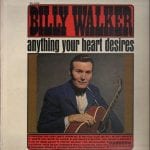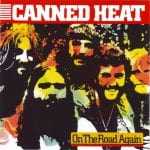The Anti-Bacharach Takes Bainbridge: Mary Gauthier at The Treehouse Cafe, 11/21/13
Mary Gauthier’s melodies are monotonous. Only when she starts singing is it typically possible to discern one of her songs from another. Such six-chord confines would doom 99 percent of artists, but Gauthier is such a searingly poignant lyricist that her ’52 Gibson merely serves as the needle for yarns wound so tightly into the bowels of humanity that you want nothing to do with unspooling them.
Born in New Orleans and now living in Nashville, Gauthier is a recovering drug and alcohol addict. She draws from rock bottom frequently in her songs, yet does so in a way that’s somehow relatable to listeners who haven’t gone through what she’s gone through. What could easily devolve into lecturing shrewdly stops at gritty observation; if listeners were to have judged her in such a manner, she wouldn’t have a career, and she knows it.
Striding onstage dressed in all black with the aforementioned Gibson around her shoulders last night at the Treehouse in Bainbridge Island, Washington, Gauthier started her set by informing those assembled that her cowboy boots were from Spain, and that if the house turned the lights down, it would “be a better show.” In the classic folksinger tradition, something that Gauthier blatantly adheres to, she talked as much as she sang. A pessimist might say she does so because she’s not possessing of a lovely singing voice, but to hear the purity with which Gauthier hits the notes in her upper register is to be presented with evidence to the contrary.
The second song in her set was “The Rocket,” written by her friend Fred Eaglesmith. Gauthier is gay, but if she weren’t, she’s not shy about admitting that Eaglesmith might be the one. The feeling is mutual. Doing her best Eaglesmith impersonation, Gauthier recalled a time when Eaglesmith, celebrating his birthday somewhere in Canada, once blurted out, “Mary-go, she’s gay, but if she was gonna have a boyfriend, it’d be me.”
Following “The Rocket” up with “Thanksgiving (at the Prison)”–a song that’s precisely as depressing as its title–Gauthier quipped, “All right, that’s it for the happy songs,” then suggested that taking a first date to one of her concerts would be the perfect compatibility test. “If you can’t get along on music, it’s gonna be hard to take long trips in a car,” she reasoned. And she’s right.
After playing “How You Learn to Live Alone,” which was featured on the TV show Nashville, Gauthier summed herself up as “the anti-Bacharach,” explaining that “you always want to write a song so good you don’t even know what it means.” Talking to her audience, Gauthier is mesmerizing, strangely reminiscent of Matthew McConaughey’s startling turn as a heterosexual–and homophobic–’80s AIDS victim in Dallas Buyers Club. Neither individual is much concerned with making you feel comfortable, yet they’re impossible to ignore.
As a lyricist, Gauthier is clearly attracted to those living on life’s fringes. She wrote “Last of the Hobo Kings” after hearing that Steam Train Maury Graham had died. Graham had repeatedly been voted “king of the hobos” at an annual convention in Iowa, and Gauthier reported that he had “Willie Nelson eyes, the kind that have such charm and charisma that women fall into them against their better judgment.”
A couple of tunes before her “Mercy Now” encore, Gauthier set up “Oh Soul,” a song inspired by the Irish musician Ben Glover’s obsession with Robert Johnson and the Delta Blues, an affinity Gauthier has a tough time grasping. “I’m from the Delta, and the first thing that came to my mind was I’ve got to get the fuck out of the Delta.”
But Gauthier being unflinchingly brave, instead she’s probed its muddy waters, wringing them out into song.




